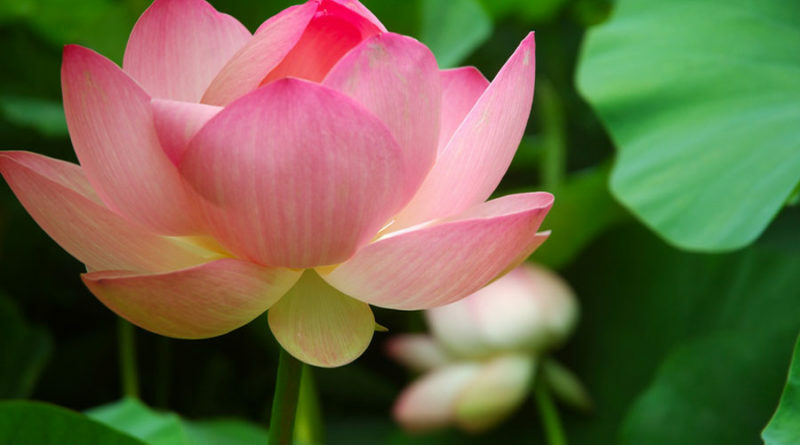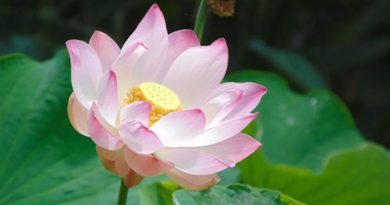The Connection Between Atta and Dukkha
Buddhist Analysis of Human Experience and the Ways to Transcend Unsatisfactoriness
Bhikkhuni Dhammanandā
(Ven. Pham T. Minh Hoa)
A Thesis submitted to the Postgaduate Institute of Pāli & Buddhist Studies, University of Kelaniya, Sri Lanka, in fulfillment for the Degree of Doctor of Philosophy
December 2007
Acknowledgement
Breathing in with deep inspirations from the Buddha-Dhamma and breathing out with deep gratitude to many Dhamma teachers, I write this acknowledgement to all my helpers who directly or indirectly have encouraged and assisted me and who have guided me on the right path. My deep gratitude goes to my Preceptor, Ven. Vien Minh (Puṇṇavijja Mahāthera) who introduces a pristine form of Buddhism to me and who teaches me to go beyond sectarian prejudices.
My deep gratitude goes to my supervisors, Senior Professor Tilak Kariyawasam who guides and corrects me in Buddhist philosophy, and Senior Professor Daya Edirisingher who gives me many practical advices. Their kindness, concern and guidance make my works become easier and pleasurable.
This Thesis would not have a beginning if it was not encouraged at the initial state by Professor Asanga Tilakaratne the former Director of the Postgraduate Institute of Pāli and Buddhist Studies, University of Kelaniya. Then, the inspiration I get from listening to the lectures of Professor G. Sumanapala, the present director has sustained my effort. I also feel thankful to Professor Toshiichi Endo and Professor N.A.Jayawickrama who have selflessly taught us Pāli and aroused in me an interest in Pāli commentaries. There are many other persons who have assisted and supported me in many ways during the period I do Postgraduate studying abroad. My deep gratitude goes to Ven. Bhikkhuni Dr. Kusuma who has assisted me in many fields, and Ven. Professor Dhamma Vihari with whom many interesting Dhamma discussions have nurtured my inquiry mind. I am also sincerely thankful for the accurate corrections and critics of my examiners.
Last but warmest grateful thanks go to my supporters, Mrs. Karen Kold Wagner and Mrs. Tu Anh Nguyen and her Dhamma friends, whose financial supports have enabled me to go through M.Phil and PhD years of research. I sincerely thank Dr. Angela Dietrich who has carefully read and corrected English style of my Thesis.
I also feel thankful to the staffs of library of the Postgraduate Institute of Pali and Buddhist Studies, University of Kelaniya who are very helpful. My thanks to all Dhamma Brothers and Sisters who’s mentally supports make me feel warm and connected in the Dhamma Way!
-ooOoo-
Abstract
This thesis is an attempt to discover the early Buddhist knowledge of human experience in different dimensions such the analysis of Khandha, Āyatana and Dhātu. What is considered as self or soul or ego-consciousness (attā or ātman) in different traditions are also presented in order to understand the Buddhist doctrine of Anatta more clearly. From a Buddhist perspective Khandhas or aggregates are the layers that cover different dimensions of human experiences: clinging, grasping at them causes pain, conflict and distress (dukkha). Relevant doctrinal points are being examined from a psychological perspective.
Out of five factors constituting a human, consciousness (viññānakkhandha), the factor that joins the different stages of experiences and makes sense of what is being felt and perceptions is a complex causal event based on the sense and its corresponding object. This analysis of human experience makes the Buddha’s teaching a unique doctrine that not only denies the existence of an all- powerful- creator (God or Brahma) but also rules out the possibility of an independent and permanent self or soul that presides over and wills its power on human experiences. The assumption that one has a self, an identity that makes one’s existence a separate unique entity is a problem: can we probe into that self? Many philosophers in different traditions, from the dawn of human civilization till now have tried to identify what that self truly is. In ordinary experience, the tension between the ongoing sense of self and the failure to find that self in reflection is the origin of human uncertainty and irritation (dukkha).
Buddhist Ways to Transcend Unsatisfactory Experiences are based on the knowledge of the human motivation which is governed by cognitive and emotive processes that intertwine in the human experience. The methods applied to solve human predicaments are many and various. The Anatta doctrine is a device to educate people to get out of the boundary of self-delusion. A similar expression concerning the non-validity of the world as conceived via our senses is termed suññatā or sūnyatā in Sanskrit. Besides, a systematic training called the Noble Eightfold Path or Threefold Trains is a gradual course to reach right knowledge (see things as they have come to be) and right deliverance (no longer grasping at experiences). Other ways intended for transcending ordinary experiences are also discussed, such as jhāna attainment, the art of deduction to unburden the mind of mental activities, and a rational way to transform emotions termed the miracle of the noble ones (ariya iddhi).
Finally, Buddhist Path is not to build up, but to deconstruct the unnecessary burden that one involuntarily carries with oneself as a misapprehension of ‘self’ and ‘the world’. This right understanding is termed anāsava sammā diṭṭhi which turns one’s course of action to transcend all self-motive and be at peace with whatever comes one’s way.







